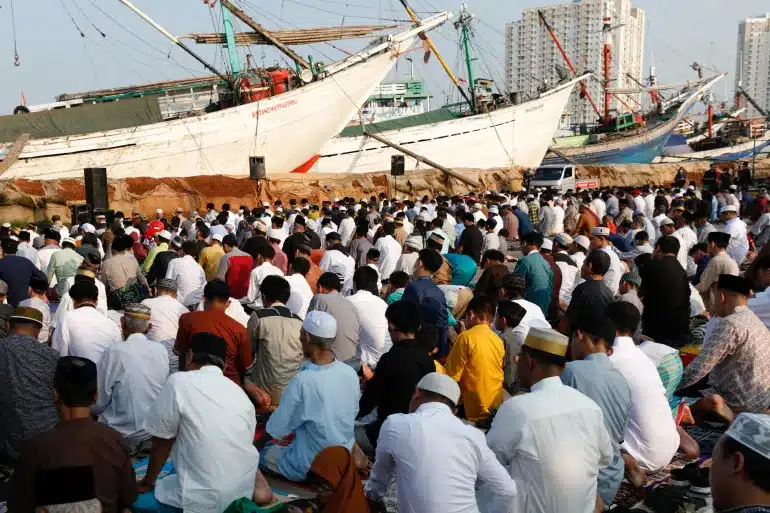Eid al-Fitr, the “festival of breaking the fast” that follows the holy month of Ramadan, is a time when Muslims congregate in Indonesia and Malaysia.
Relieved to be allowed to celebrate freely following the lifting of most COVID-19 restrictions that had stifled past festivities, Muslims in Indonesia and Malaysia have congregated in large numbers to usher in the Eid al-Fitr festival, which marks the end of the holy fasting month of Ramadan.
To commemorate the conclusion of Ramadan, hundreds of worshippers gathered at the historic harbour of Sunda Kelapa in North Jakarta, the country with the largest proportion of Muslims in the world, for morning prayers on Saturday.
“I’m very happy that we’re free (of COVID curbs) now,” Laila, 35, who goes by one name like many Indonesians, told the Reuters news agency.
Another worshipper, 30-year-old Adit Chandra, said: “I hope it gets better from here on, and that we can gather together with our families after the last three years of not being able to go back to our hometown.”
Chandra is among the more than 120 million Indonesians – nearly half the country’s population – who plan to travel from major urban centres to their hometowns for Eid al-Fitr.
The figure represents about 44 percent more than the number of people who travelled during celebrations last year, the government said.
In neighbouring Malaysia, devotees also celebrated with families.
“We can visit the extended family, and do so without suspicious feelings … during the pandemic we were cautious,” said Khairul Soryati, a 39-year-old resident of the capital, Kuala Lumpur.
Muhd Nur Afham, 31, who works in Singapore said he could finally celebrate with family in Malaysia this year after not being able to travel during the pandemic.
“I’m grateful … last time we only met through video call,” he said.
Authorities in both countries have, however, urged the public to remain cautious amid reports of rising COVID cases.

